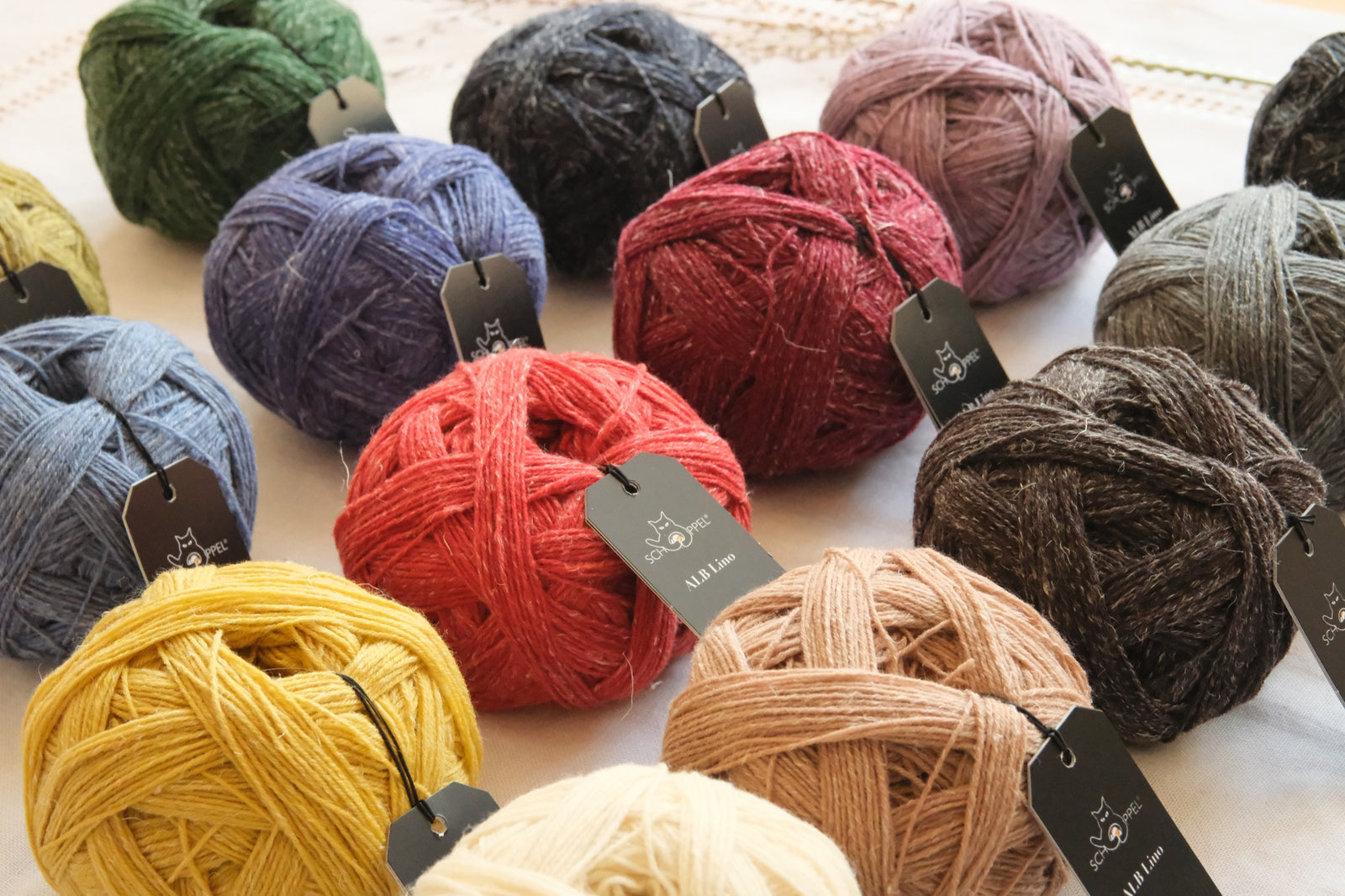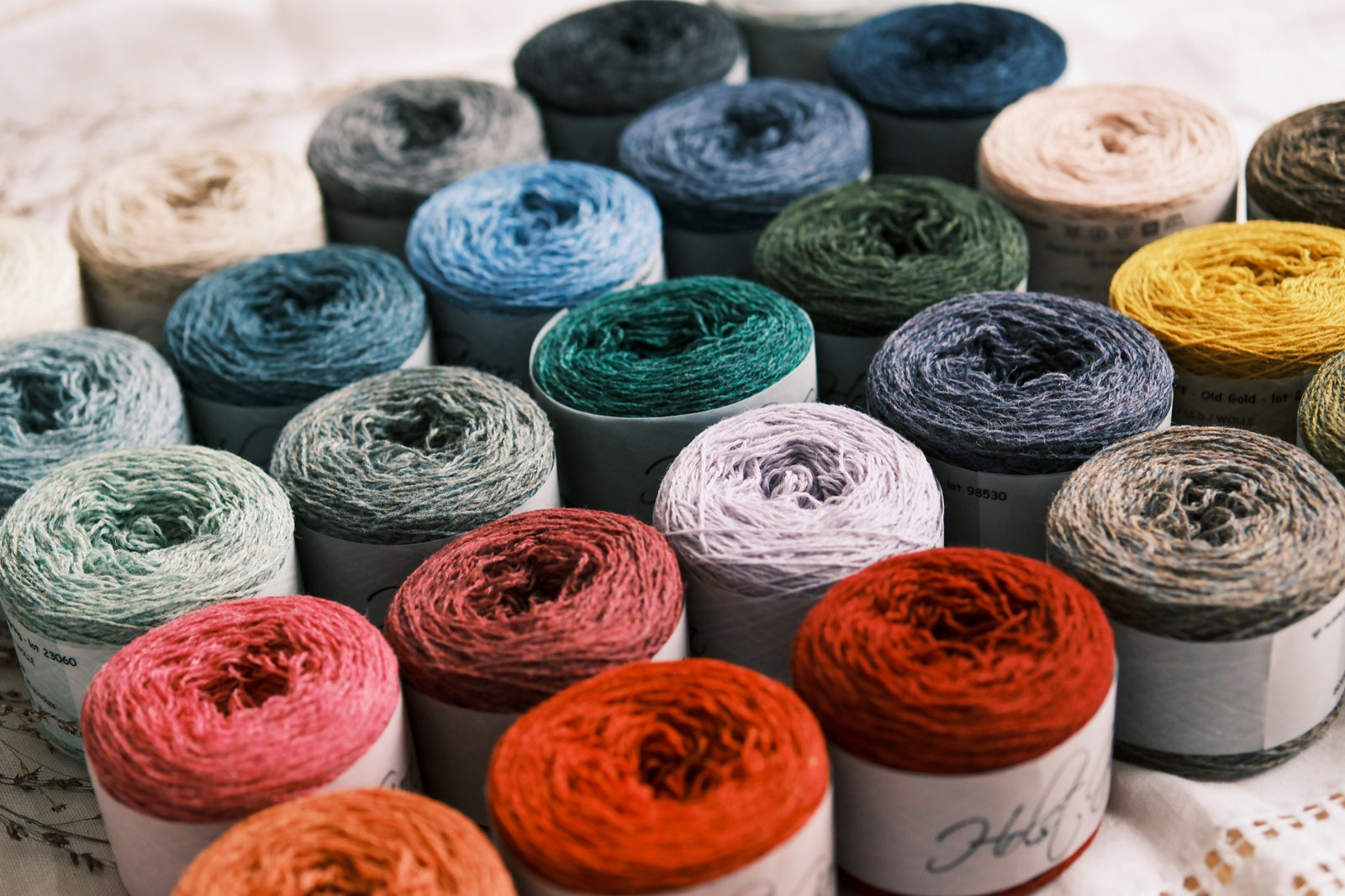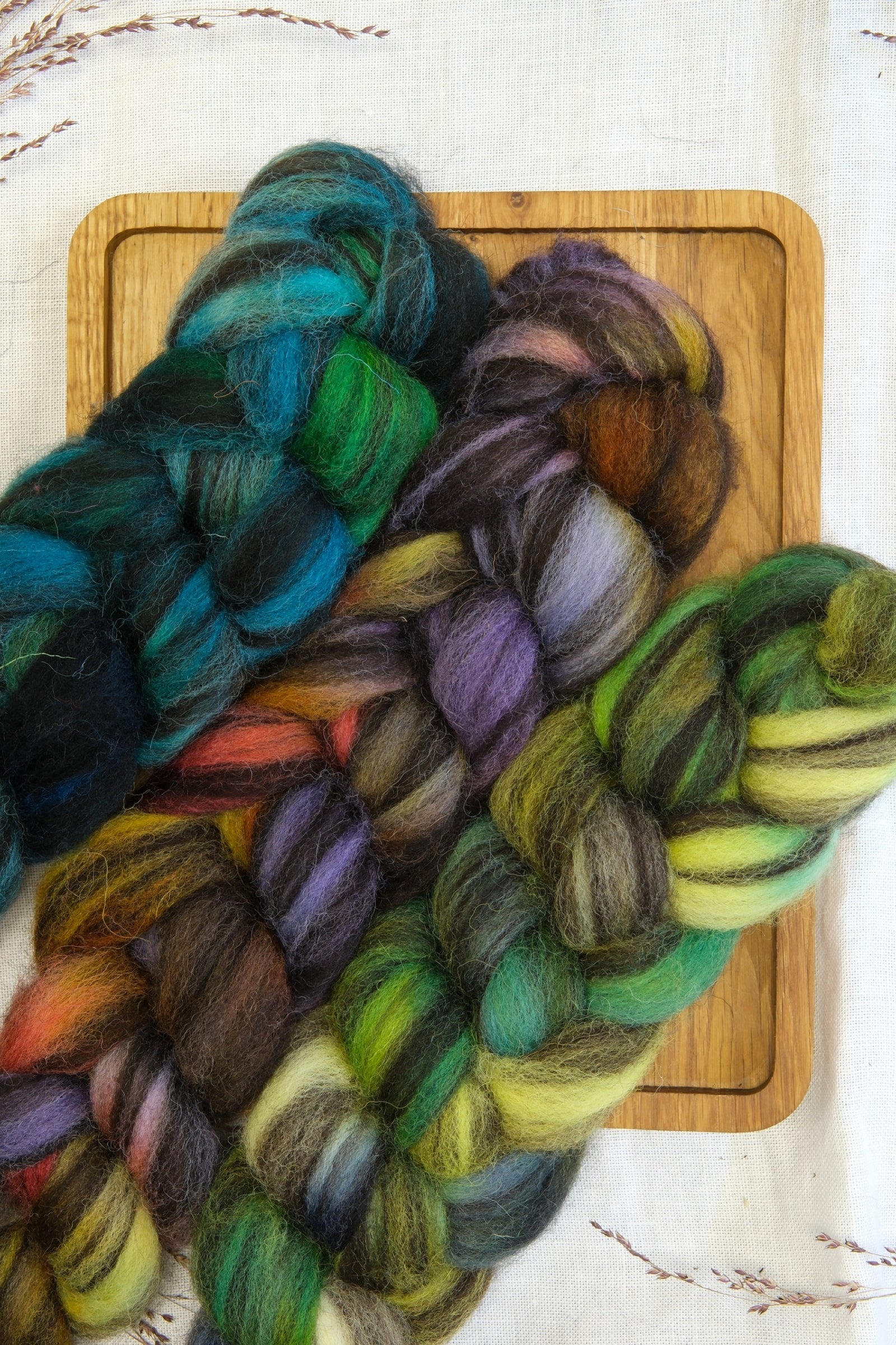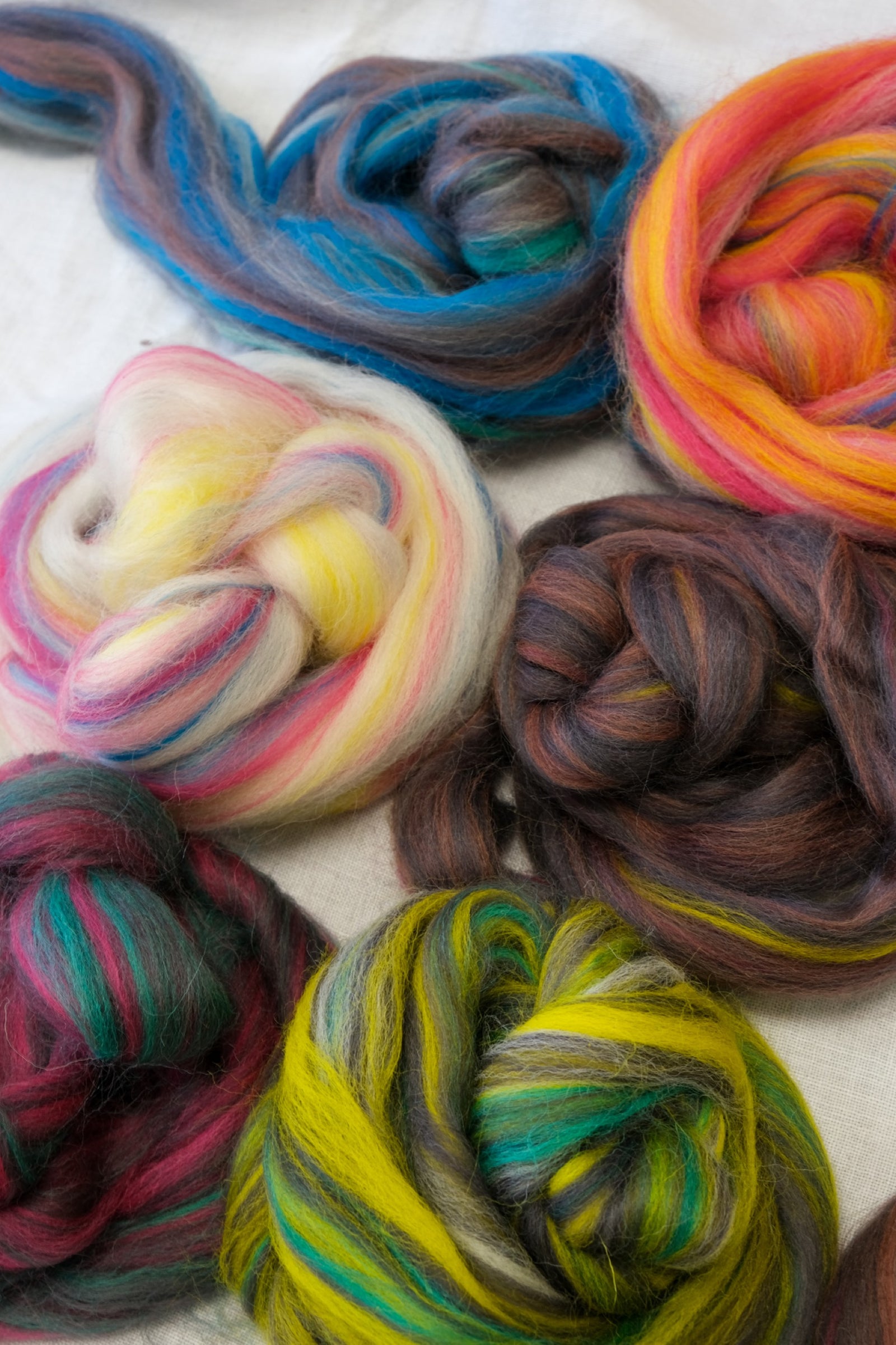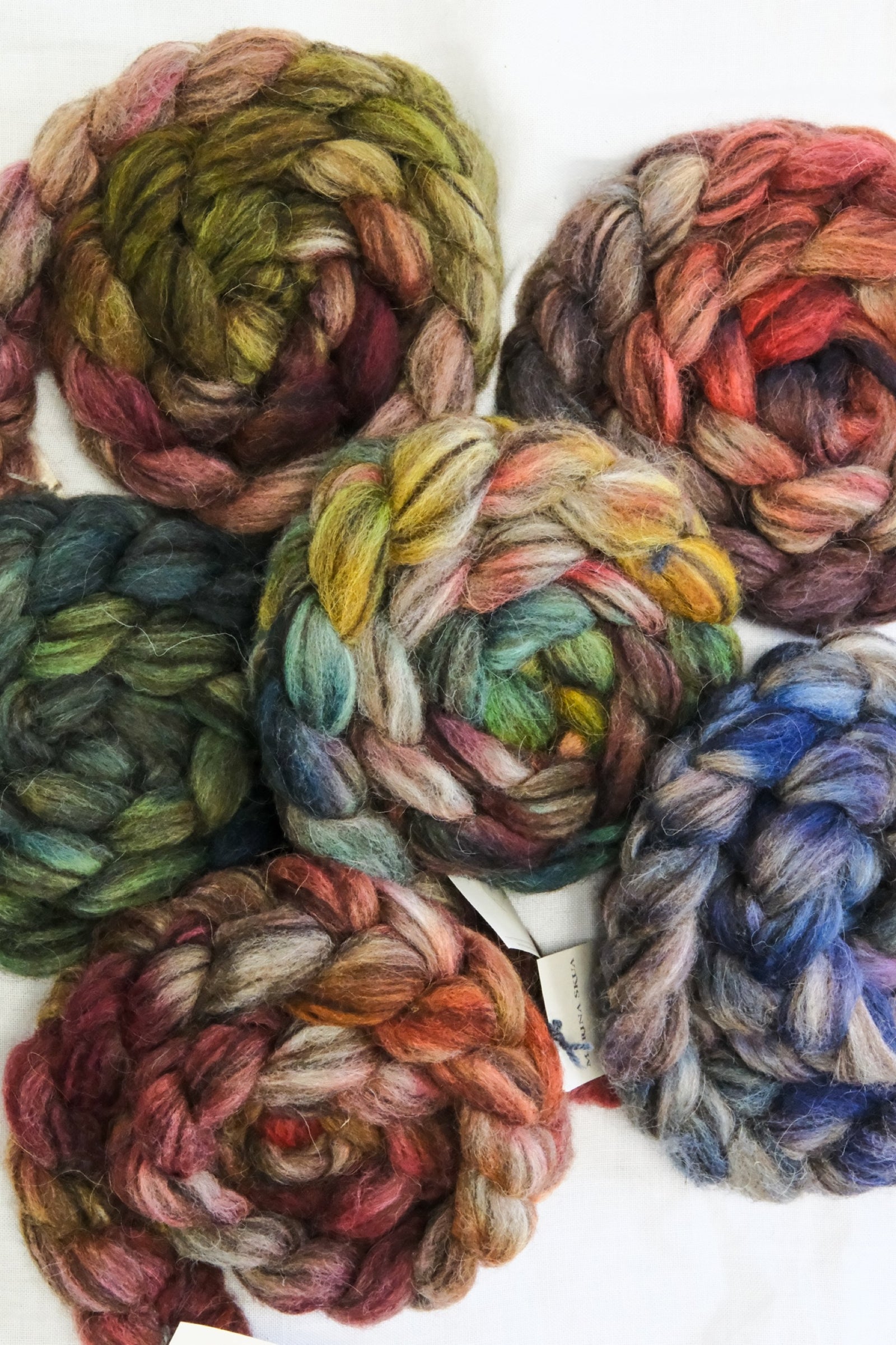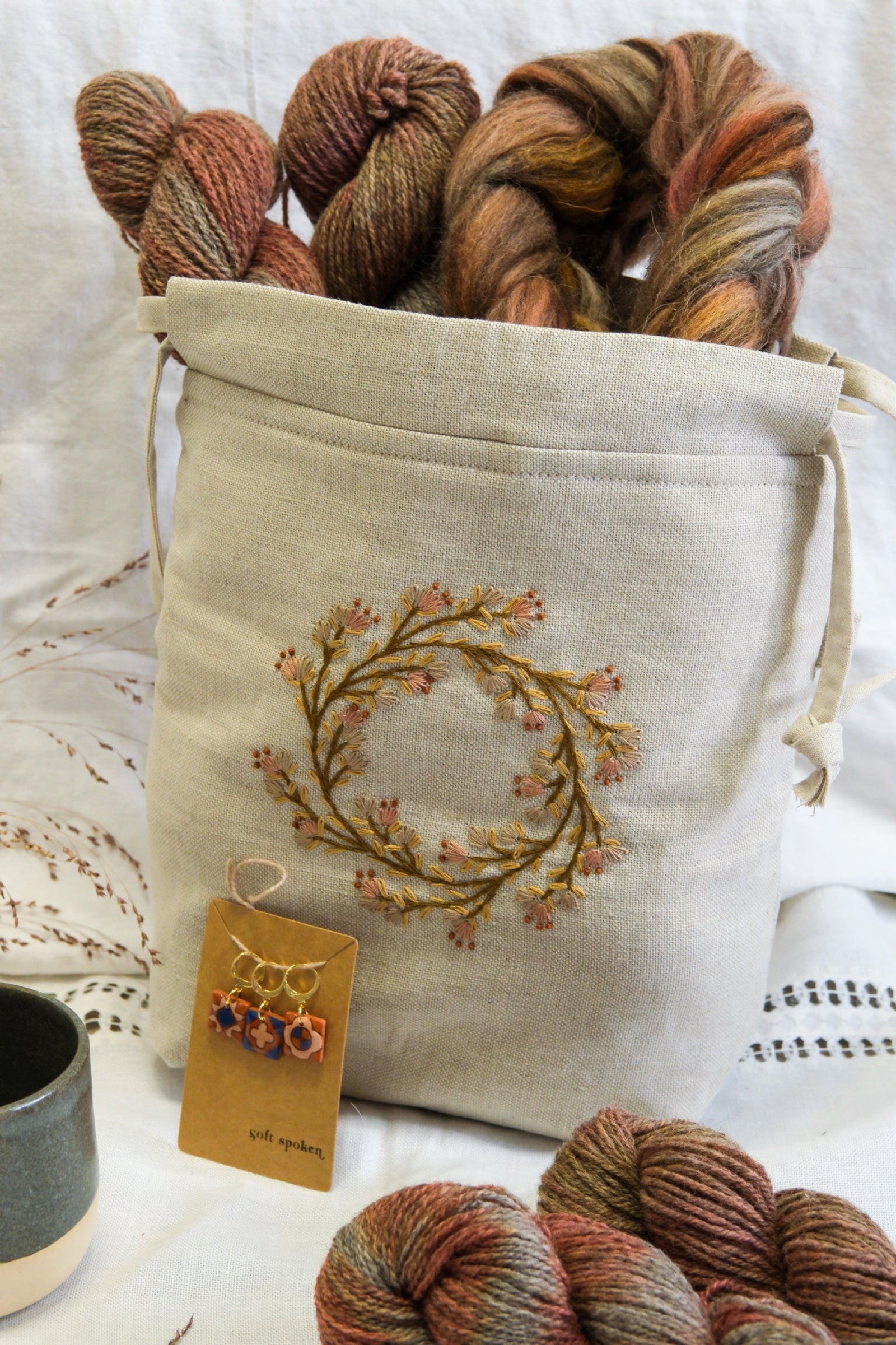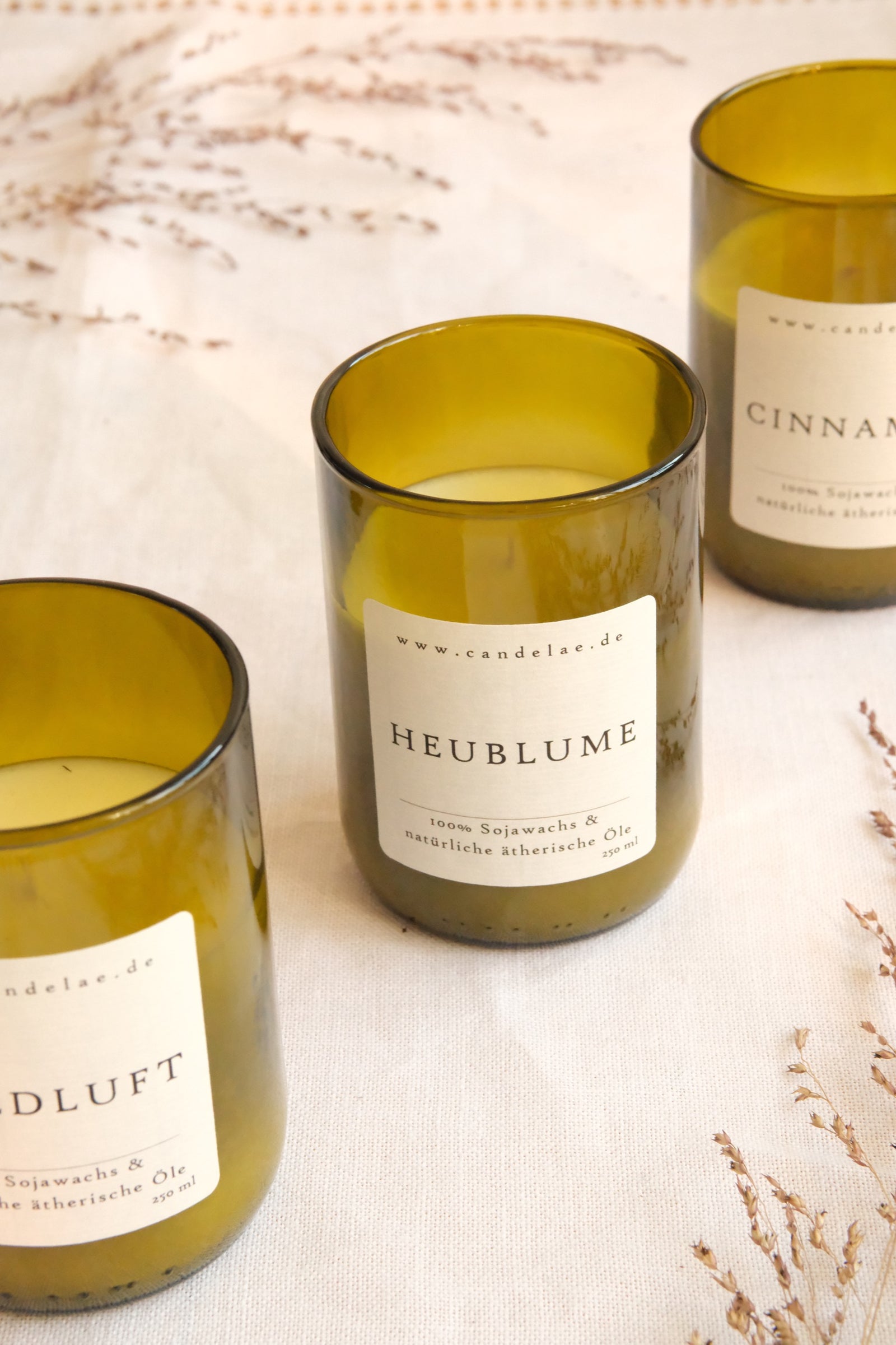As of April 1, Making Stories is closed. Thank you for your support all these years!
As of April 1, Making Stories is closed. Thank you for your support all these years!
Spinning Fiber
Notions & Gifts
Books, Magazines & Patterns
About Us
We're here to help you stitch sustainability into every aspect of your making.
With our carefully curated selection of non-superwash, plastic-free yarns and notions, we have everything you need to get started on your next project - and the one after that.
Here's to a wardrobe of knits we love and want to wear for years to come!
We're here to help you stitch sustainability into every aspect of your making.
With our carefully curated selection of non-superwash, plastic-free yarns and notions, we have everything you need to get started on your next project - and the one after that.
Here's to a wardrobe of knits we love and want to wear for years to come!

Our Sustainability Pledge

Our Blog

Our Podcast

The Making Stories Collective
What Is Greenwashing?
October 21, 2020 4 min read
'Green', 'Eco-friendly', 'Recyclable', 'Natural'; these just some of the words you might come across when trying to shop sustainably, and they can be great indicators of an earth-friendly product. But what about when businesses use them as a marketing tool, attaching them to a not-so-sustainable item to sell more? When a company is more interested in putting their money into marketing their products as 'green' instead of doing the actual work to make them so? This is greenwashing.
As consumers, we are becoming more and more socially conscious when it comes to spending our money, and as soon as a cause comes with a financial incentive, you will see people taking interest/advantage. The problem is, they are less invested in the cause, but more so with their bank balance.
So how do we avoid getting misled? Well, being able to spot it when it's happening is a start, but it can be tricky. Let's look at some possible examples of greenwashing when it comes to our knitting.
*Note: Bear in mind that if a business uses the below language and branding choices, it doesn't automatically mean they are greenwashing, just that it's always good to question them and not take it at face value.

Possible examples of Greenwashing
-
'Natural' - This word is used fast-and-loose when it comes to greenwashing. Next time you're in a drugstore, take a look at how many beauty products like to mention their 'naturally derived ingredients'.' You see the same happening in the fibre world. Synthetic fibres often come under fire for being harmful to the environment, so by comparison, natural fibres must always be good, right? Not necessarily. Natural fibres can go through a lot of processing before they reach your knitting needles, so just because something is labelled as 'natural', doesn't mean it is automatically a sustainable choice. (Check out our previous post 'What Is In My Yarn?').
-
'Made from recycled materials/packaging' - But what exactly is recycled? All of it? If it's only a percentage, what is the rest made of? Also, what recycling processes are used? When it comes to greenwashing, you'll often find really vague statements like this.
-
'Made from ethically sourced materials' - Another vague statement. Which materials are they talking about? In what way were they sourced ethically? What percentage is ethical, and how were the rest sourced?
-
Branding - Companies who wish to seem more 'green' will often add cute plants to their packaging and neutral colours because they are 'natural'. If you look a little closer you may find it's not the case.
So you think a company is greenwashing, but how do you know for sure?
Not every business out there who is claiming to be producing sustainably made products is pulling the proverbial wool over your eyes. But how to spot the wolf in sheep's clothing?!
-
You will find their commitment to sustainability in all aspects of their business, not just one product.
-
They will be open and transparent about, not only how they run their business, but the mistakes they have made and where they can do better. When it comes to living more sustainably as individuals, we always say that you can't do all the things and get it right every time. It depends on what sustainability means to you and taking the time to learn. It's the same with businesses, no one is looking for perfection, just honesty.
-
All of their work will be sustainable. It won't just be one product, or even limited to what they sell, it will extend throughout their supply chain and working relationships. Another example of greenwashing is when a company who, up until now, hasn't shown any interest in producing sustainable products but comes out with their new 'earth-friendly' item. This will either be out of the blue or as a response to criticism over the way they run their company. They're less interested in saving the planet and more interested in distracting you from what they're actually up to.
-
Do some digging. If a company is making vague claims about the sustainability of their products, that's usually a red flag right there. If a business truly cares about being green it will be at the core of their work and you shouldn't have to look far to find out what you need to know. It will be right there on the label/website/social media.

-
Can't find any answers? Call/email them. If they remain vague, walk away, if they don't say anything, well, that speaks volumes.
So what is the takeaway?
We talk about sustainability a lot, but one of the problems with that word is that it is so ambiguous. The same goes for all those buzz words. 'Green', 'eco-friendly', 'earth-friendly'; they don't actually mean anything specific and can be used in many ways which make them perfect for marketing and misleading customers. Greenwashing is harmful not only for the customer but also for all the companies out there doing the actual work. So next time you are presented with claims of 'going-green', do a little investigating to see if those claims hold up.
It's also important to recognise that when it comes to fighting greenwashing, a lot of the responsibility is placed on the shoulders of us, the consumer. That's a lot of pressure, so if you have fallen victim to greenwashing (I know I have!), know that you are not alone! The important thing is to learn from it and not be hard on yourself.
What are your thoughts on greenwashing?
Leave a comment
Comments will be approved before showing up.
Also in Blog

Issue 13 – Confetti & Rainbows | Official Pattern Preview
February 12, 2025 13 min read
Hi lovelies! The sun is out here in Berlin, and what better day to talk about one of the most joyful issues we've ever done than a brilliant sunny winter day – meet Issue 13, Confetti & Rainbows!
In Issue 13 – our Spring 2025 Issue – we want to play! Confetti and rainbows, unusually and unconventionally interpreted in 12 new knitwear designs – a journey through color, shapes, texture and materials.
Confetti made out of dried flowers, collected over months from bouquets and the road side. Sparkly rainbows, light reflecting. Gentle textures and shapes, echoing the different forms confetti can take. An unexpected rainbow around the corner, on a brick wall, painted in broad strokes.
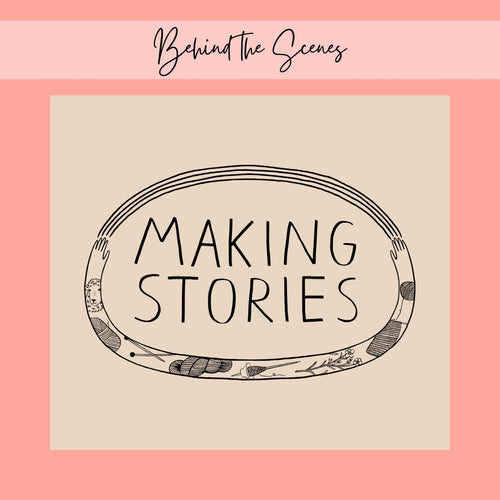
New Look, Same Heart: The Story Behind Our Delightful Rebrand
January 16, 2025 4 min read 1 Comment
Hi lovelies! I am back today with a wonderful behind-the-scenes interview with Caroline Frett, a super talented illustrator from Berlin, who is the heart and and hands behind the new look we've been sporting for a little while.
Caro also has a shop for her delightfully cheeky and (sometimes brutally) honest T-Shirts, postcards, and mugs. (I am particularly fond of this T-Shirt and this postcard!)
I am so excited Caro agreed to an interview to share her thoughts and work process, and what she especially loves about our rebrand!

Thoughts on closing down a knitting magazine
November 19, 2024 12 min read 1 Comment
Who Is Making Stories?
We're a delightfully tiny team dedicated to all things sustainability in knitting. With our online shop filled with responsibly produced yarns, notions and patterns we're here to help you create a wardrobe filled with knits you'll love and wear for years to come.
Are you part of the flock yet?
Sign up to our weekly newsletter to get the latest yarn news and pattern inspiration!

